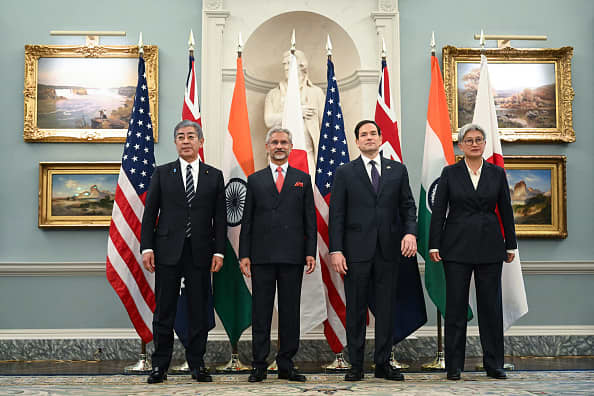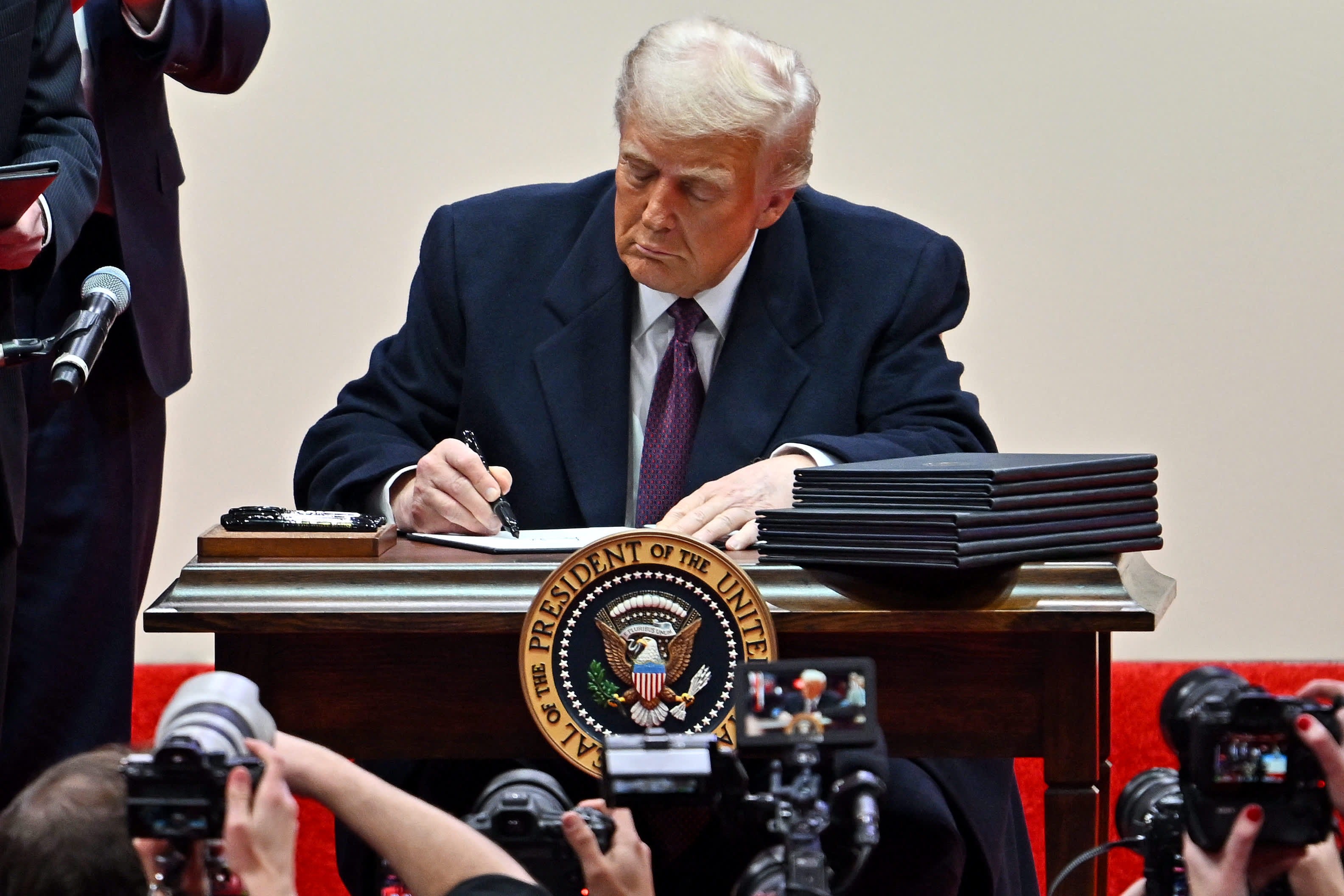After stumbling upon the 2002 novel Soul Drinker in a small Irish library, Dave Rudden became hooked on Warhammer.
The young adult writer, known for his Knights of the Borrowed Dark trilogy, says the mix of dark sci-fi and 'ludicrous bombast' was gripping and spurred him to write fan fiction before he could even afford to buy iconic Warhammer tabletop figurines.
Rudden loves how a 'humble box of Space Marines' can occupy your time as much as any novel, computer game or television series, whether it is building, playing or painting them in your preferred style.
'Each model grants you partial ownership of your little corner of the galaxy,' he tells This is Money.
'It's almost like buying stock, except that the value of it is decided by you and a very enthusiastic community who want to hear about your journey with your models as much as you want to hear about theirs.'
And buyers of real shares in Games Workshop - the FTSE 100 debutant behind Warhammer - have become equally enthusiastic, cashing in on a hobby Rudden shares with millions around the world.

Demand for the group's fantasy miniatures has contributed to its shares climbing by 144 per cent over the past five years - and a whopping 2,652 per cent in the last decade.
With an impressive market capitalisation of £4.6billion, Games Workshop will scale new heights later this month when it joins the FTSE 100 Index for the first time.
Entry to London's blue-chip index comes at an apposite time; 2025 will be 50 years since three friends - Ian Livingstone, Steve Jackson and John Peake - founded the company in a Shepherd's Bush flat.
Having started out selling board games, the trio got an early break when Dungeon & Dragons creator Gary Gygax asked them to be the hit role-playing game's exclusive UK and European distributor.
Soon afterwards, the firm provided funding to help set up Citadel Miniatures, which produces miniatures for its tabletop games, before starting Warhammer in 1983.
The 1990s were an eventful period; Livingstone and Jackson sold Games Workshop for £10million, the group listed in London, its headquarters moved to Nottingham, and it founded a publishing arm, Black Library.
Trading surged at the start of the following decade when it gained the rights to make Lord of the Rings miniatures in conjunction with Peter Jackson's epic film series, but struggled after the third film stopped showing in cinemas.
A key turning point for Games Workshop came in 2015 when Kevin Rountree became chief executive.
Under his leadership, Games Workshop's annual sales have more than quadrupled and its pre-tax profits have climbed from £16.6million to £203million.
This has been achieved through improving relations with fans, partly by launching the Warhammer Community website to help connect with them and introducing games with simplified rules.
One particular game, Blood Bowl, parodies American football, with teams of fantasy creatures like elves, orcs and dwarfs competing to score 'touchdowns'.
Another has been Warhammer 40,000, a dystopian wargame situated in a galaxy dominated by an autocratic human empire called the Imperium of Man.

These games are not cheap; a second season edition of Blood Bowl costs £100 online, while a Warhammer 40K starter set will set you back £130.
But Warhammer has so many loyal fans willing to fork out relatively large amounts for fantasy figurines, both old and new editions, providing Games Workshop with a reliable stream of sales.
'If you or a loved one have ever been bitten by the Warhammer bug, you'll know that the variety and constant changes that Games Workshop has injected into the miniatures means that you're always a good few quid lighter when you walk out of their shops,' says Alex Campbell, analyst at Freetrade.
'It's little wonder, then, that Workshop has scaled Warhammer into a powerhouse that could hit over £240million in profits in their current financial year.'
Last month, the company said it forecast combined core and licensing revenues of at least £290million for the six months ending 1 December, compared to £248.6million over the same period in 2023.
This followed a record annual result, when its pre-tax profits in the year to 2 June jumped to £203million thanks to higher demand from trade customers and the release of Warhammer 40K's tenth edition.
Games Workshop's sales have risen for the past eight consecutive years despite the Covid-19 pandemic forcing the group to impose severe trading curbs at its stores during the early 2020s, including temporary closures.
In fact, the coronavirus provided a significant boon to the business as restrictions on socialising led to homebound consumers seeking new ways to entertain themselves.
Many people got into Warhammer, such as 'Ringed Mountain', the pseudonym of an Idaho-based state employee who co-hosts a podcast on the game called The Bad Moon's Orbit.
'Everyone was looking for something to distract, and I bounced around a couple of different artistic outlets before landing on Warhammer: Age of Sigmar,' he says.
'It offered me a sense of artistic expression while being less demanding than a lot of traditional art forms.'
On top of painting models, Ringed Mountain claims to play the game four to six times per week, often for around three hours.


One reason he believes Warhammer has a very devoted fanbase is the 'sense of permanence' that comes from owning models you have painted, which cannot be as easily replicated with video games.
'Games Workshop can't patch my models out of existence, and even when they do update an old model's aesthetic, the originals continue to exist,' he adds.
'The idea that your entertainment is something you can own is practically a novelty in modern nerd spaces. Games Workshop could disappear from the earth tomorrow, and I'd still be able to play the game.'
Warhammer readies for streaming debut
Ownership is taken seriously by Games Workshop; it controls nearly all aspects of its products, including their design, manufacturing and distribution.
The set-up gives the company a tight grip over its intellectual property and contributes to its high profit margins, which rose to 69.4 per cent in the previous financial year.
Although it does not liberally license its IP, the firm increasingly makes money from licensing, primarily through video game sales in North America, the UK, and Europe.
That could change in the coming years should Amazon develop Warhammer 40K into films and television shows.
Games Workshop reached a deal in principle in late 2022 for the retail giant to make films and TV series based on its wargames.
The pair reached a milestone this week after agreeing on 'creative guidelines' for adapting Warhammer 40K into on-screen productions.
If an Amazon series or film inspires even more people to collect fantasy miniatures as a hobby, then the golden run of form currently enjoyed by Games Workshop could last a generation or even longer.
So could Games Workshop become a regular mainstay of the FTSE 100, sitting alongside businesses belonging to old-fashioned industries such as banking, oil, and tobacco?
Analysts at Peel Hunt say the Amazon deal marks an 'important final step in bringing Warhammer to a global audience'.
The company is an unusual British success story that seems all but immune from the general pessimism pervading the UK economy.
However, future prosperity will likely depend on the continued loyalty of an intensely passionate fanbase, which has propelled Games Workshop to where it is today.
As Ringed Mountain says: 'I don't know if I'll always play Warhammer, but it's hard to beat spending a couple of hours around a table in someone's garage, sharing a few drinks, pushing miniatures around, swearing or cheering at dice rolls, and just enjoying our time together.'
DIY INVESTING PLATFORMS
Affiliate links: If you take out a product This is Money may earn a commission. These deals are chosen by our editorial team, as we think they are worth highlighting. This does not affect our editorial independence.
Compare the best investing account for you











